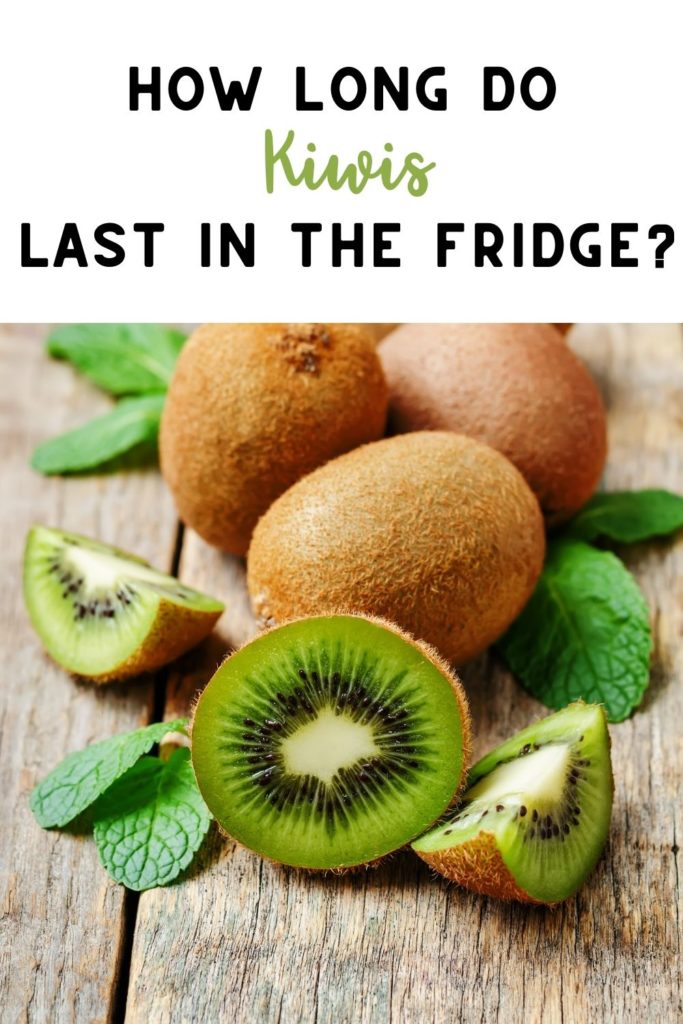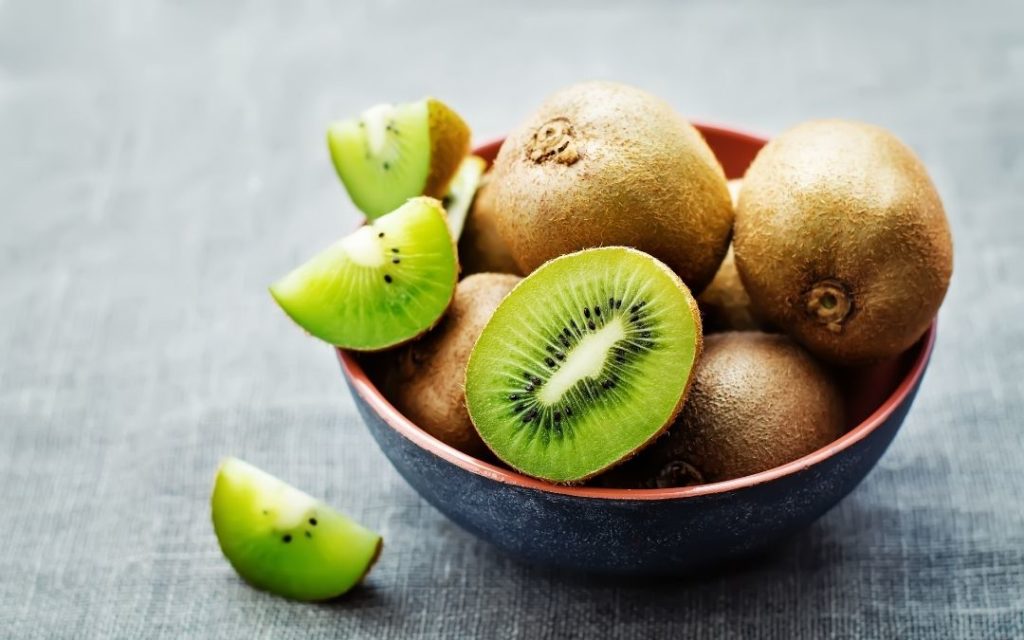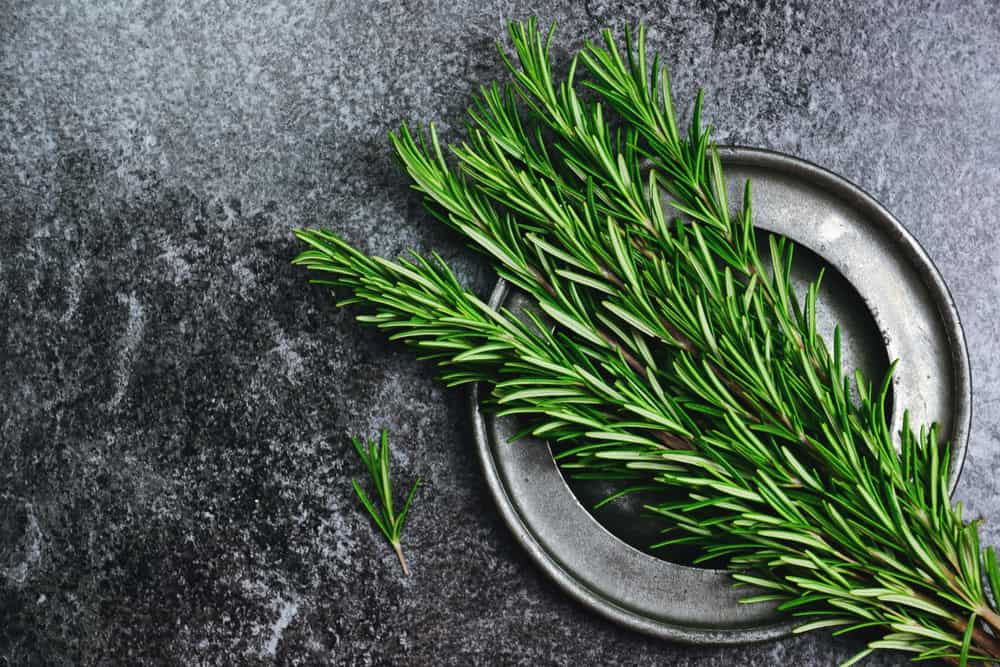Kiwis are a popular fruit because of their incredible nutritional value—they can be consumed raw or cooked into delectable sweets and smoothies—and that’s why many people often stock up on kiwis. These fruits appear to spoil rapidly, so many people often question how long kiwi can be stored.
Despite its dark and hairy appearance, the kiwi fruit is delicate and tasty. Larger kiwi fruits with no scratches, cracks, or bruises on the outside are preferable. They should only yield slightly to a gentle touch.
The lifespan of kiwi hinges on when you collected it, how you handled it, and how you stored it.
Inside the rigid shell, kiwis are a lovely shade of green, with tiny, totally palatable seeds. You can keep unripe kiwi on the counter for some time, but once they’re ripe, you’ll want to consume them fast before the flavor and texture goes away.
Furthermore, you should avoid kiwi with cracks or big bruising on the surface and be wary of any apparent mold—though this is unusual.
That said, I’ll answer the most frequently asked question—how long do kiwi last in the fridge and other related questions—so let’s get started.
This post may contain affiliate links. Read my disclosure policy here.
How Long Do Kiwis Last In The Fridge?
Unripe kiwi will keep in the fridge for a couple of weeks and won’t go bad quickly because of the low temperatures in the refrigerator. Still, ripe kiwi can last in the refrigerator for approximately four weeks, while ripe kiwi will last in the freezer for up to a year.
Storing overripe kiwifruit in the fridge will not help them stay longer. The lower temperatures only delay decomposition, but please note that your kiwi’s overall quality will have gone. That’s why it’s recommended that you consume overripe kiwi as soon as possible.
Additionally, the length of time held at the supermarket or wherever you bought your kiwis will affect how long they will survive. The kiwi may have delayed getting into the market from the time they were harvested, and you can never know whether it might have already ripened before getting into the market.
How Do I Store Kiwi?
Kiwi won’t last long after it’s ripe and harvested. Therefore, it is critical to know how best to store and extend your kiwis’ shelf life.
You need to keep unripe kiwifruits on the kitchen counter or in the pantry at room temperature. They will begin to ripen in a couple of days or perhaps a single day— and this depends on how long they have been kept in grocery shops.
To store unripe kiwi, simply place them in a basket and allow them to ripen. But if you wish to have them ripen as quickly as possible, put them on the countertop. Otherwise, if you’re not in a rush, keep them in the cupboard to ripen gently.
Fruits such as apples and bananas will help the kiwis mature faster than when at room temperature. Therefore, it would be best to arrange these ethylene-producing fruit close to the kiwis to speed up the ripening process (by a day or two) besides leaving them at room temperature.
Unripe kiwi can also be stored in the fridge. Refrigerating the kiwis will extend their shelf life by many months. However, if you want to consume or utilize them, keeping them at room temperature is better.
When it comes to ripe kiwifruit, the fruit won’t survive long at room temperature. As a result, always keep them in the fridge.
It’s recommended that you remove the skin and cut them into smaller pieces before storing them in the fridge. Once that is done, place your kiwis in a sealed container or resealable plastic bag and put them in the refrigerator.
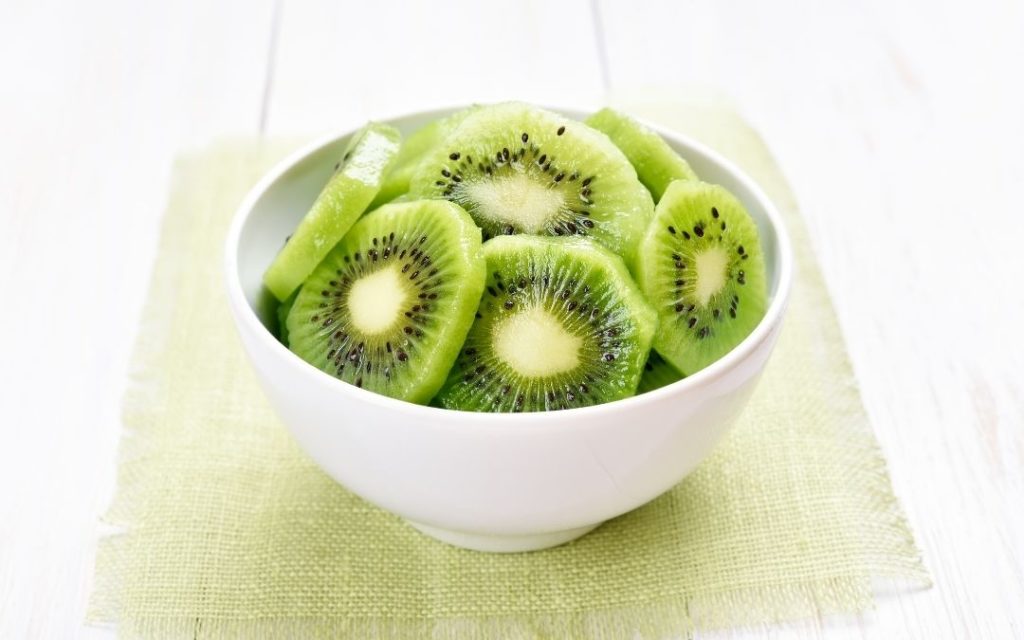
Can I Freeze My Kiwi?
Yes, you can freeze kiwifruit, and when you thaw them, they turn mushy. As a result, frozen kiwi is ideal for smoothies and other beverages. Because of the texture, it may not be suitable for eating or for preparing meals.
Most people do not like to freeze kiwi because of several issues. First, kiwis take quite a bit of freezer room, especially if you plan on storing a bunch of them. Moreover, when it is frozen, the texture and flavor alter.
When keeping kiwi in the freezer, use sliced kiwi instead and ensure they are ripe first before getting them in your freezer.
Furthermore, you should freeze kiwi in an airtight container or a freezer bag. Both are suitable for usage and will keep the kiwi safe and fresh. Flash freezing sealed containers is recommended initially to support the kiwis from clinging together after they’re frozen.
The best way to prevent your kiwis from clinging together is to flash freeze them. And once that’s done, press out any extra air in the freezer bags before closing it.
How Do I Freeze Kiwi Correctly?
Storing kiwifruit is an excellent technique to extend its shelf life. You must first correctly prepare them if you want them to stay for an extended period. That said, the following are the steps for preparing your kiwi for freezing:
- First, ensure the kiwis are ripe and, if yes, clean with clean running water.
- Allow it to sit and dry for a few minutes on a dry paper towel, or place it in a container to drain dry.
- Cut the ends of the kiwifruit using a sharp knife.
- Remove the peel from the kiwis and chop them in half or to your desired size.
- Line a baking sheet with parchment paper.
- Place the kiwi pieces on the parchment paper in an equal layer.
- Place the kiwi tray in the freezer for about 30 minutes.
- Once frozen, simply transfer the kiwi to an airtight freezer bag to keep the kiwis from melting and sticking together in the freezer.
How Will I Tell If My Kiwi Is Bad?
Like any other fruit or vegetables will go bad, and most people may not be able to determine whether or not their kiwi has gone bad. But not to worry, there are usually several signs that you can look for to determine whether your kiwi has gone bad or is still safe for consumption. That said, below are some of the signs that your kiwi has gone bad:
- They are moldy—Remove any molds or tiny damages on the kiwi skin. However, if the skin damages are worse with so many molds, it might be best to throw away the kiwis as they might have gone bad and, therefore, not safe for consumption.
- They are mushy, extremely squishy, or dripping with water—If the kiwi reaches this stage, it’s time to get rid of them. These are all signs that your kiwi has gone bad, and there’s no point keeping them for consumption as you stand the risk of food poisoning.
- You have stored your kiwi longer in the fridge—If you’ve had your cut-up kiwi in the fridge for more than one week, it’s time to throw it out. However, in some rare cases, an entire kiwi can last up to a month, so your 3-week-old kiwi may still be edible.
- In any other sense, something doesn’t seem right—trust your instincts if your sight, nose, or taste senses warn you that the kiwi isn’t completely safe to consume.
The majority of the rotting indications I mentioned above are determined by how you perceive your kiwi quality. Some people may think that soft kiwi is suitable for consumption, whereas others believe they’ve gone bad. Either way, it’s always good to trust your instincts and rely on your judgment.
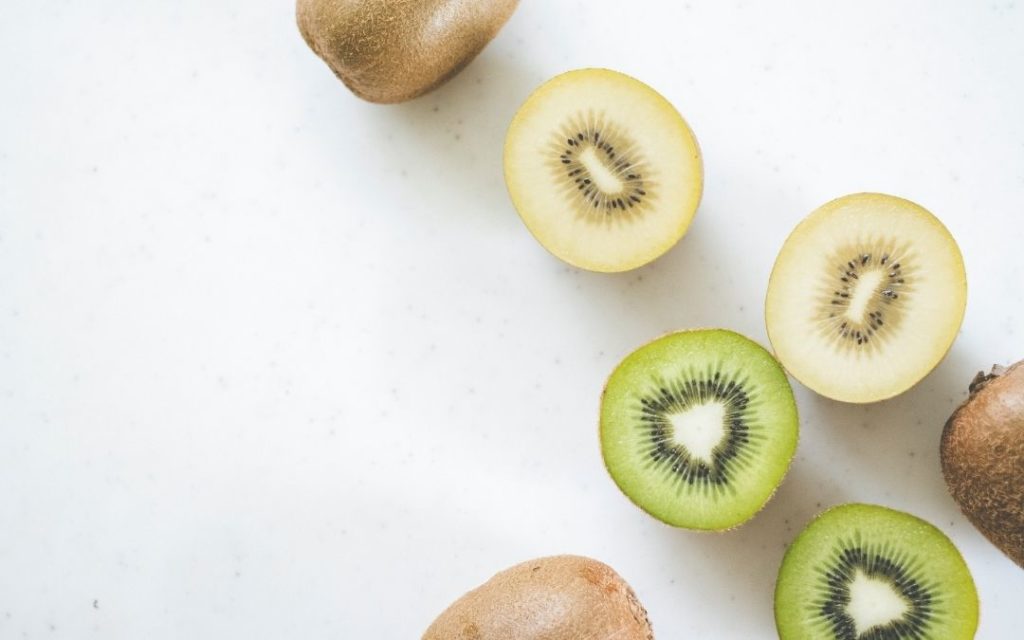
Related Questions
1. Why is My Tongue Burning When Eating Kiwi?
Some persons may experience signs of an oral allergy syndrome. When a person eats a specific quantity of kiwi or another allergic food, their lips and throat can get itchy and tingling. But please note that swelling and skin rashes can also occur due to an oral allergy syndrome.
2. Which Is Better, Green Or Gold Kiwi?
Although golden kiwis have vitamin C content and around 30% more folate, green kiwis have a modest dietary fiber and sugar content advantage. In any event, both types of this tropical fruit are high in nutrients and provide a nutritious and delightful complement to any cuisine.
3. Can kiwi make you sick?
In most instances, kiwi responses are minor and cause only minor local symptoms. However, extreme reactions can arise, resulting in a potentially fatal condition known as anaphylaxis. Tingling in the mouth and throat, which leads to swelling, are also other symptoms of a severe kiwi response.
4. Why is my kiwi sour?
Kiwifruit continues to bloom once it’s harvested, so if you’re not in a hurry to consume them, it would be convenient to acquire them unripe. The unripe kiwis are relatively firm and do not give much when squeezed. They have a better feel and a slightly astringent or sour kiwi flavor when eaten immaturely.
5. What happens if you eat kiwi every day?
Consuming kiwi fruit is unquestionably an excellent habit to develop in your daily life. A diet rich in antioxidants would help prevent the emergence of some malignancies and lower the risks of heart disease. Certain types of cancer have been linked to DNA oxidation, according to several scientific research.
